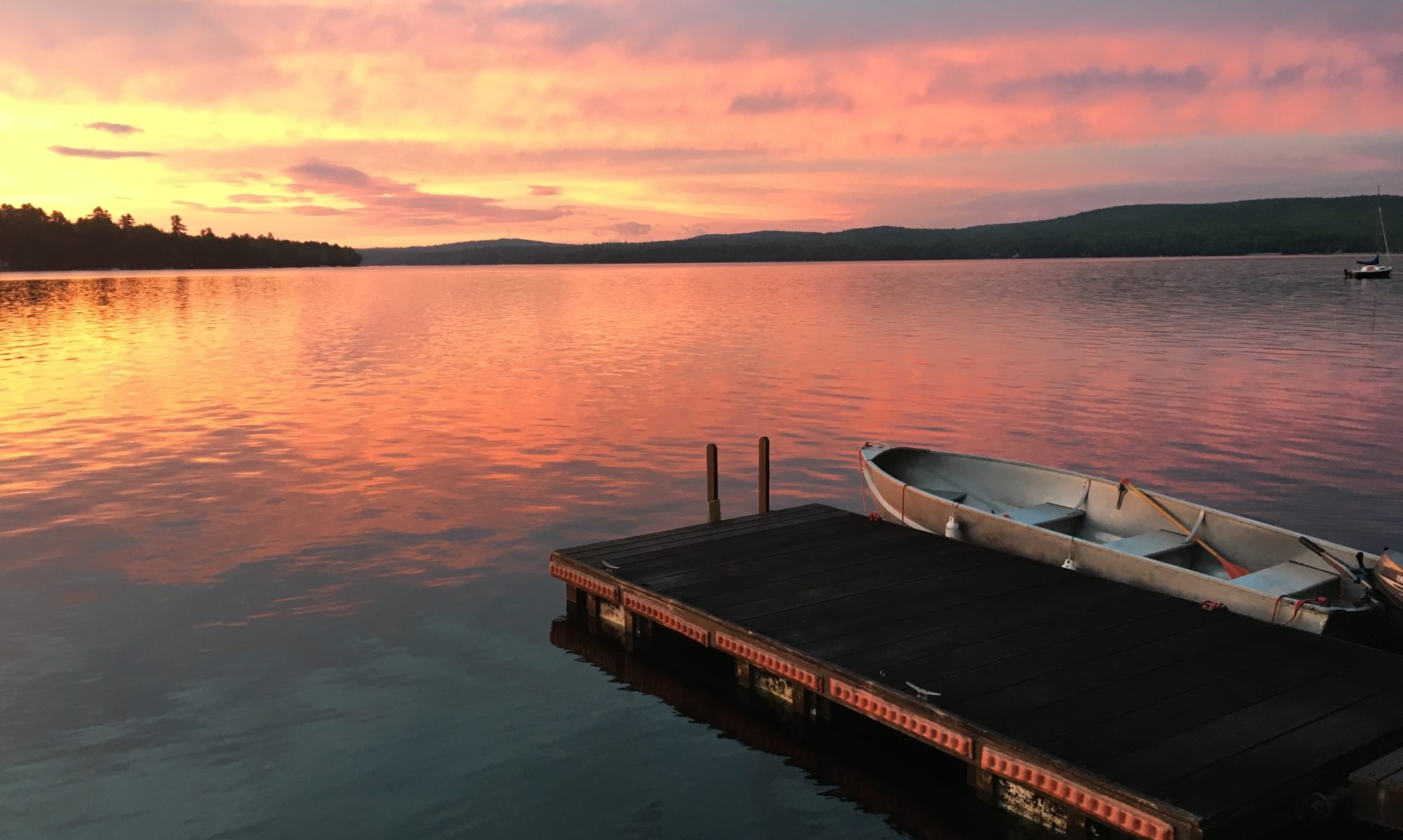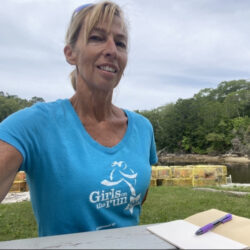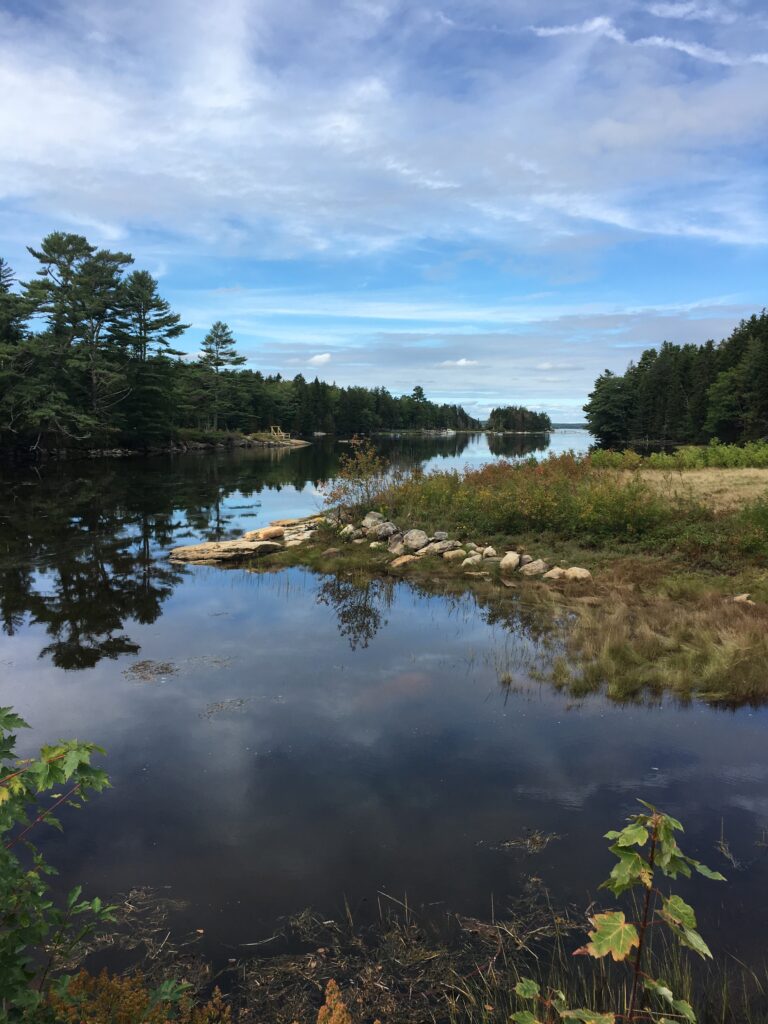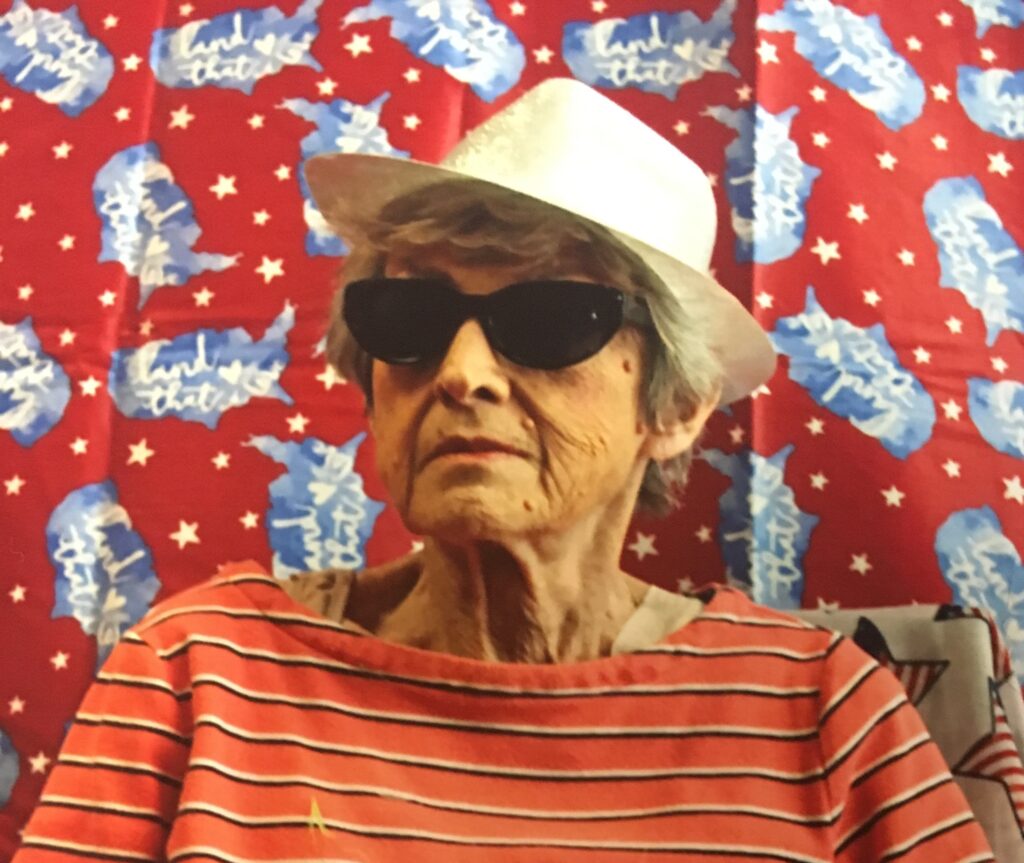After my parents’ divorce, my mother started dating a man named Bob. I resented him. Fiercely. That flat-top, Marine buzz cut; his even-tempered personality; their 17-year age difference; how hard he tried to be my friend; the way he called me “kid.” By the time my mother married Bob—right there in our house, my house, the house on the island where she and my father and I had lived until he left us for a different family—I outright hated Bob. He was not my father. And he never would be.
At the small April wedding in our living room, in pink bridesmaid dress and straw hat, my half-smile in the Polaroid snapshot was as false as Bob’s upper denture.
After two years of alternately tolerating and tormenting my mother and Bob, I, too, left to live with different family: my father, his wife and her twelve-year-old son. Without a word of warning, I hopped a Greyhound bus the summer of my fourteenth year, armed with a haphazardly-assembled LL Bean totebag of essentials: Levi corduroys, flannel shirts, my Stephen King book collection. Four hours later, I called my father from the bus terminal behind the Esso station by the river.
“Does your mother know where you are?” he asked.
“Nope,” I admitted.
“Best give her a call, then,”
So began the next chapter in my life.
***
Running away to another life was among the first in a series of many future impulsive, and generally ill-fated, life choices: nearly quitting high school my last semester to party in Florida; moving in with an abusive boyfriend; drifting in and out of various colleges and minimum wage jobs; selling everything I owned and moving three thousand miles away to the West Coast with no job or money; getting a tattoo.
Really, though, leaving my mother to live with my father was a selfish choice. Bob was too old, too nice, too hokey. Bob never got mad, never raised his voice. He was goofy. Ice cream delighted him. He had a closet full of polyester pants and worked at the local newspaper. He wore bifocals. He whistled constantly and did crossword puzzles. He wore gingham shirts (short-sleeved, at that) and bow ties. And Keds—Keds!—on weekends, with plaid shorts. He drove a Volvo wagon and subscribed to National Geographic. Bob was too damn nice. And he would never be my father.
My father, on the other hand, was a free spirit. An oceanographer by trade, now trying his hand at running a 25-room bed-and-breakfast. He could debate for weeks on any number of the provocative issues of the moment: nuclear power, ACLU rights, the Carter Administration’s peace accord. My father wore jeans and T-shirts, drove a beat-up Saab and heated his house with wood. He was an environmentalist before it was trendy to be “green.” My father was the cool dad.
As the years passed and my perspective shifted, Bob began to grow on me. Through my blurred twenties when I’d return for a brief summer visit to that house on the island, Bob was still there, still as cheerful as ever. He still adored my mother and was nothing but pleasant and considerate toward me. After my father’s second marriage came to a screeching and unexpected end, I realized how deeply Bob loved my mother and the stability he’d brought to her life.
And so, on my summer vacations to Maine, I began to spend more time with my mother and Bob and less time with my friends. After a life-changing event which included divorce, death and sobriety, I grew to appreciate my mother’s and Bob’s routines: Bob helping my mother with her monthly newsletter; cheeseburgers at the island’s lunch-counter-bowling-alley; a shared maple walnut ice cream cone; church every Sunday. Even after 28 years, they were as passionate as newlyweds.
And yet, I never told Bob I loved him.
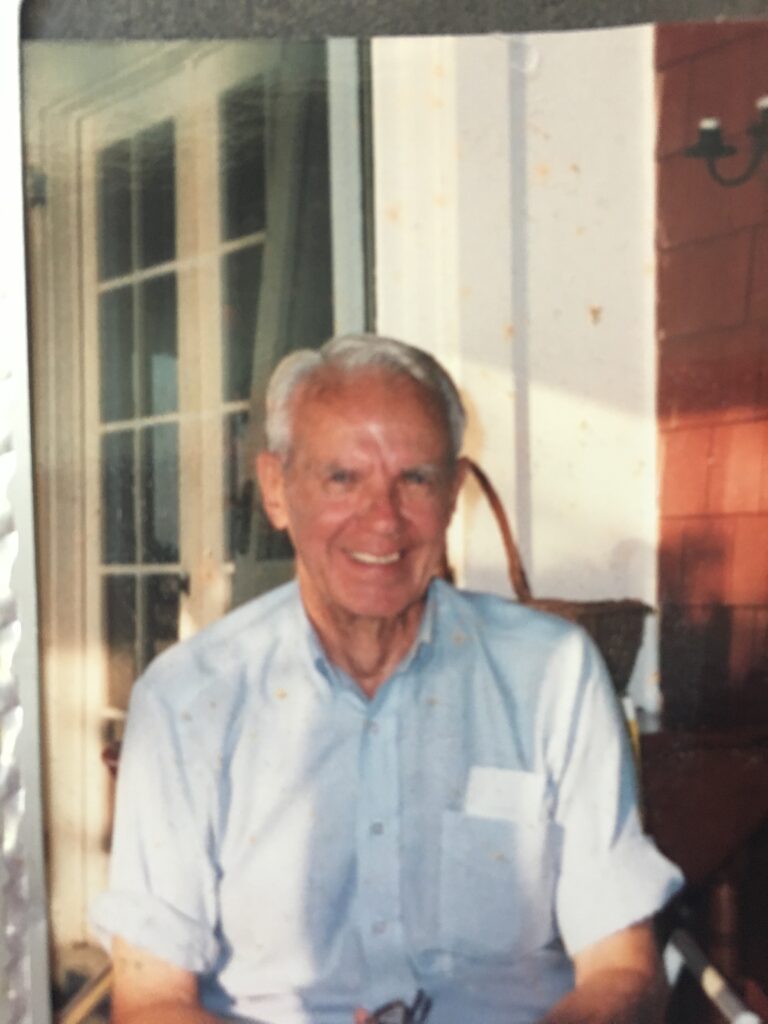
In a strange twist of fate, I am now married to my own Bob. There is an age difference. He wears gingham shirts on occasion (long-sleeved, no bow tie), whistles, loves ice cream, was in the printing business, has great legs. And, like Bob, he has brought decades of love and stability to my life.
The last time we spoke, fifteen years ago, I called Bob on Father’s Day. His voice was raspy but exuberant. He’d just brought the flag in for the night, he said; another daily routine from his time with the Marines. I told him I loved him; this I finally knew. “I love you, too, kid,” he said.
A few weeks later, he passed away.
Bob would have been 100 years old on Father’s Day. He may be gone from this life, but his legacy lives on. And in my memory, his flag will always fly at half-mast.
